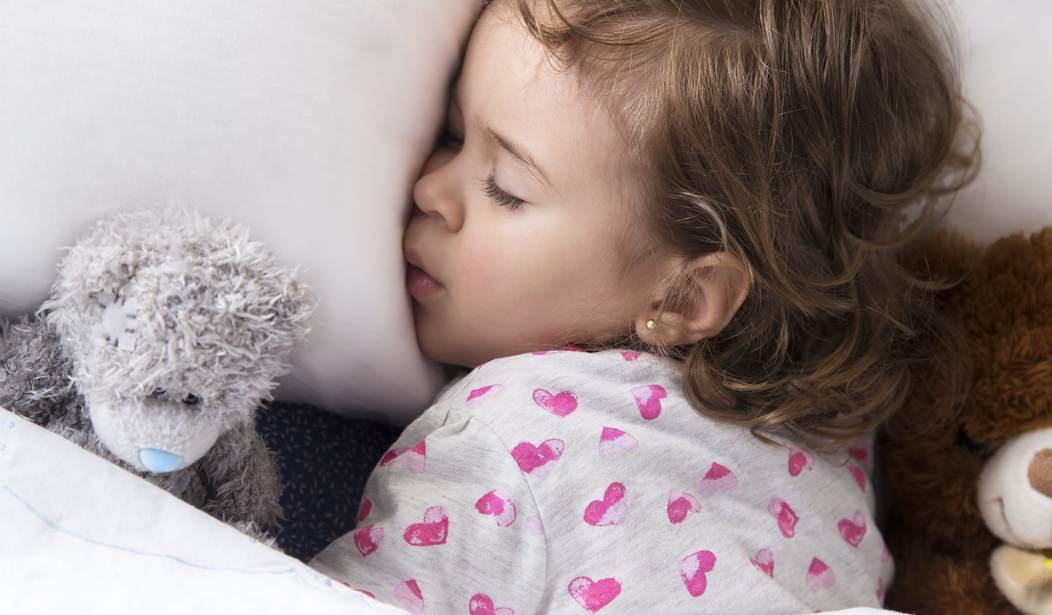Hallelujah! My husband and I haven’t caused any permanent damage to our son by sleep training him! At least that’s what the latest research tells us. When our baby was young, he didn’t sleep for more than an hour without crying. For four and a half months straight. We were at a point where mental illness felt like a very real possibility for us. Our pediatrician gave us the go ahead to start sleep training, which in our case was graduated extinction. After a couple of “cry it out” nights, the whole household was sleeping. It was as if a huge load was lifted from our shoulders—my son’s included.
But critics of sleep training feel that allowing a child to “cry it out” causes undue stress and damages the parent-child bond. So when desperate parents have nowhere else to turn, what are they to do? Luckily, a new study has shown that perhaps there isn’t much to worry about after all.
In a study published this week in the journal Pediatrics, 43 infants in Australia, 6 to 16 months old, all healthy, but identified by their parents as having sleep problems, were randomized to three different groups. In one group, the parents tried graduated extinction, the technique in which babies are allowed to cry for short, prescribed intervals over the course of several nights. The second group tried a technique called bedtime fading, in which parents delay bedtime in 15-minute increments so the child becomes more and more tired. And the third group, as a control, was just given sleep information.
The researchers measured the babies’ stress by sampling their levels of cortisol, a hormone indicating stress, and also looked at the mothers’ stress; 12 months after the intervention, they evaluated parent-child attachment and looked at whether the children had emotional and behavioral problems.
Both sleep techniques – graduated extinction and bedtime fading — decreased the time it took children to fall asleep and graduated extinction reduced night wakings, compared to the control group. All the salivary cortisol levels were within the normal range in all three groups, but the afternoon levels in the two sleep training groups declined over time more than the controls. And there was no difference among the groups, 12 months later, in the measures of the children’s emotional and behavioral well-being.
Most importantly, this article points out the importance of doing what you, as a parent, are comfortable with. The study serves more to provide pediatricians with improved data about the subject so that they can, in good conscience, recommend this technique to parents of sleepless babies.
There’s some good evidence that the various methods of “sleep training,” none of which should involve letting a small infant cry for hours in a dark room, work for many children and many families. There’s no evidence that they do lasting damage to the child or the parent-child bond and, in fact, some reassuring evidence that they don’t.
As a pediatrician, I think about the baby, but I also try to take into account how the parents are doing. I sometimes wonder how the people who are most strongly opposed to any form of sleep training would feel about having their children’s teachers, or doctors or bus drivers, coming to work sleep deprived after really disrupted nights. Sleep matters, as we have learned to acknowledge in medical training. Babies matter, and so do parents.









Join the conversation as a VIP Member